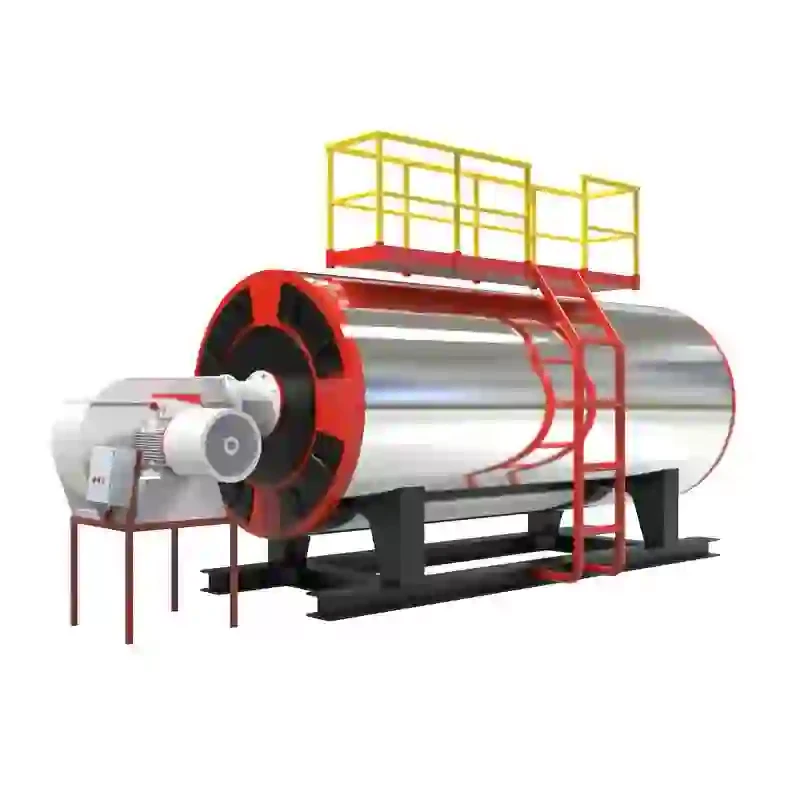
Kas . 11, 2024 16:39 Back to list
what is a biomass boiler
What is a Biomass Boiler?
A biomass boiler is a heating system that utilizes organic materials, such as wood pellets, chips, or agricultural residues, to produce heat and hot water. This renewable energy technology has gained popularity in recent years as a sustainable alternative to traditional fossil fuel-based heating methods. Biomass boilers are designed to burn these materials efficiently, thus converting them into thermal energy that can be used for residential, commercial, or industrial purposes.
How Biomass Boilers Work
Biomass boilers operate on a straightforward principle they burn organic materials to generate heat. The process begins with the feedstock, typically in the form of pellets, logs, or chips. This biomass is loaded into the boiler's combustion chamber, where it is ignited. The heat generated from this controlled combustion process is transferred to water in a heat exchanger, producing steam or hot water for use in heating systems.
Most biomass boilers are equipped with automated feeding systems that ensure a continuous supply of fuel to the combustion chamber. This automation allows for consistent heat output without the need for constant manual intervention, making biomass boilers practical for both residential and larger-scale applications.
Types of Biomass Boilers
There are several types of biomass boilers, each suited for different applications and scales of operation
1. Pellet Boilers These are popular for residential heating. They burn small, cylindrical pellets made from compressed wood and other organic materials. Their efficiency and ease of handling make them an attractive option for home heating.
2. Chip Boilers These utilize larger pieces of wood, usually sourced from trees that have been chipped into small parts. Chip boilers are often used in commercial settings where larger heating demands exist.
3. Log Boilers Designed to burn whole logs, these are typically used in less modernized systems. They require more manual loading but can be cost-effective if there’s a supply of wood on hand.
4. Combined Heat and Power (CHP) Systems These advanced systems not only generate heat but also produce electrical energy by harnessing the byproducts of biomass combustion. They are particularly beneficial for larger enterprises seeking to maximize energy efficiency.
what is a biomass boiler

Advantages of Biomass Boilers
Biomass boilers offer multiple benefits that make them an attractive choice for enhancing energy sustainability
1. Renewable Energy Source Unlike fossil fuels, biomass is renewable. As long as trees and plants are harvested responsibly and new growth is encouraged, biomass remains a sustainable energy source.
2. Carbon Neutral The carbon dioxide released during biomass combustion is offset by the CO2 absorbed by plants during their growth. This nature of biomass energy supports efforts to mitigate climate change.
3. Energy Security Utilizing biomass reduces dependence on imported fossil fuels, promoting local energy production and enhancing energy security.
4. Waste Reduction Biomass boilers can efficiently utilize agricultural and forestry residues, such as straw, sawdust, and wood chips, which might otherwise contribute to waste and environmental pollution.
Challenges and Considerations
Despite their advantages, biomass boilers come with challenges. The supply and quality of biomass feedstock can be an issue; inconsistent fuel quality can affect combustion efficiency. Additionally, the initial investment cost for a biomass boiler system can be higher than traditional fossil fuel systems, although they may lead to long-term savings through lower operational costs.
The combustion of biomass can also produce emissions, including particulate matter and other pollutants. Therefore, it’s essential to employ clean combustion technologies and robust emission control systems to ensure that biomass heating is environmentally friendly.
Conclusion
Biomass boilers represent a forward-thinking move toward sustainable energy use in heating. By utilizing organic materials, they help reduce greenhouse gas emissions, reduce reliance on fossil fuels, and promote a circular economy by repurposing waste materials. As technology advances, and with proper management practices in place, biomass heating can play a crucial role in the global transition to renewable energy sources, contributing to a greener, more sustainable future.
-
High-Efficiency Commercial Oil Fired Steam Boiler for Industry
NewsJul.30,2025
-
High-Efficiency Biomass Fired Thermal Oil Boiler Solutions
NewsJul.30,2025
-
High Efficiency Gas Fired Thermal Oil Boiler for Industrial Heating
NewsJul.29,2025
-
High-Efficiency Gas Fired Hot Water Boiler for Sale – Reliable & Affordable
NewsJul.29,2025
-
High Efficiency Biomass Fired Hot Water Boiler for Industrial and Commercial Use
NewsJul.29,2025
-
High-Efficiency Biomass Fired Hot Water Boiler for Industrial Use
NewsJul.28,2025
Related PRODUCTS






















